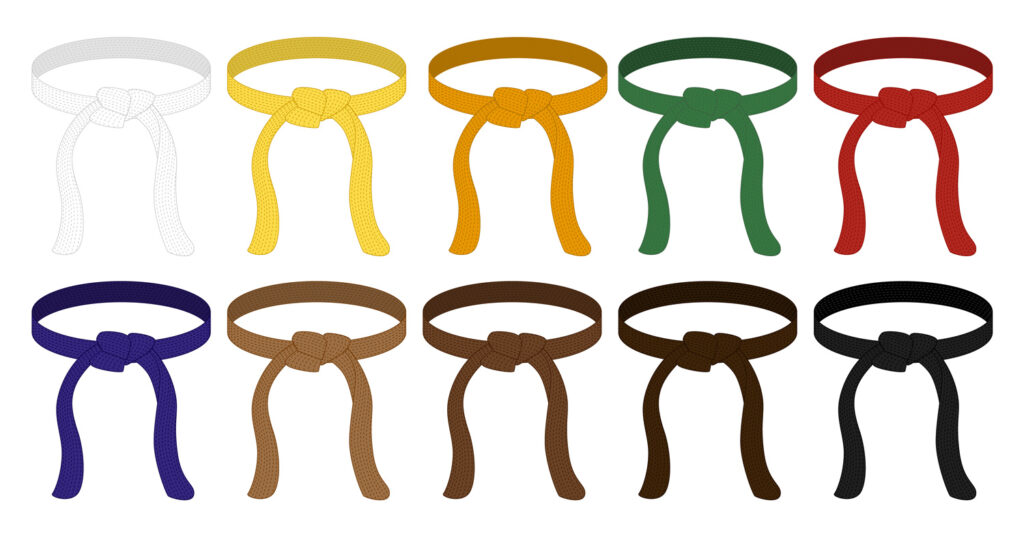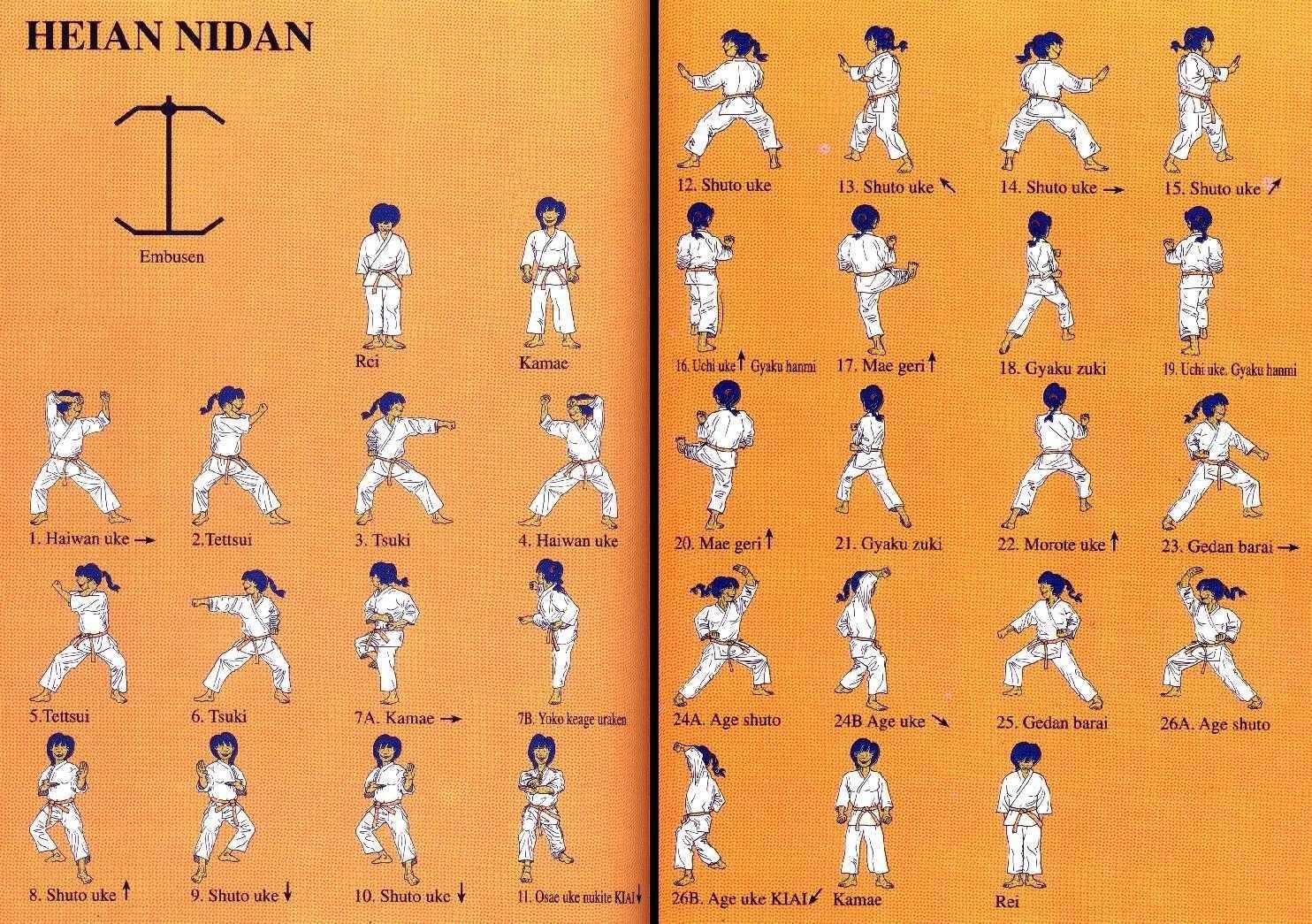Great Tips About What Is The 1 Kyu In Karate

Karate Uniform Everything You Need To Know MiddleEasy
Understanding the 1 Kyu in Karate
1. What Does 1 Kyu Really Mean?
So, you're curious about the 1 Kyu in Karate, eh? Well, buckle up, because we're about to dive into the world of colored belts, sweat, and maybe a few bruised ribs (hopefully not!). Simply put, the 1 Kyu is the rank just before you achieve the coveted black belt. Think of it as the final boss battle before you can call yourself a Karate Master...or at least someone who knows more than just how to tie their belt.
In most Karate styles, the 1 Kyu is represented by a brown belt. It signifies a significant level of proficiency, dedication, and understanding of the art. You've spent years honing your techniques, memorizing katas, and probably enduring countless push-ups. Reaching 1 Kyu means you're not just going through the motions anymore; you're actually starting to understand the underlying principles of Karate.
It's not just about kicking and punching, though. At this level, the emphasis shifts towards practical application, strategy, and even a bit of teaching. You're expected to be a role model for the lower ranks, demonstrating proper form and helping them learn. Basically, you're becoming a mini-sensei yourself!
Consider it this way: you've climbed almost all the way up the mountain. You can see the peak (that sweet, sweet black belt), but there's still some tough terrain to cover. The 1 Kyu is where you really solidify everything you've learned and prepare yourself for the final ascent. So, keep training hard, and don't forget to breathe!

The Journey to 1 Kyu
2. How Much Time and Effort Are We Talking Here?
Let's be honest, getting to 1 Kyu isn't exactly a walk in the park. It requires years of dedicated training, consistent effort, and a willingness to push yourself both physically and mentally. The exact timeframe can vary depending on the style of Karate, the frequency of your training, and your natural aptitude, but generally, you're looking at around 3-5 years of regular practice. That's a lot of sweat equity!
During this time, you'll be learning and perfecting a wide range of techniques, including basic strikes, blocks, kicks, and stances. You'll also be memorizing increasingly complex katas (prearranged forms) and practicing kumite (sparring) with your fellow students. And, of course, there will be plenty of conditioning exercises to build your strength, endurance, and flexibility. Think burpees... lots and lots of burpees.
But it's not just about the physical aspects. Reaching 1 Kyu also requires a deep understanding of the philosophical and ethical principles of Karate. You'll be expected to demonstrate respect, discipline, and perseverance, both inside and outside the dojo. Karate isn't just a martial art; it's a way of life.
It's a journey of self-discovery, personal growth, and a whole lot of bruises. There will be times when you feel like giving up, when you're sore, tired, and frustrated. But if you stick with it, the rewards are well worth the effort. Reaching 1 Kyu is a testament to your dedication, your resilience, and your unwavering commitment to the art of Karate. You've earned that brown belt, wear it with pride!

Nomes Dos Golpes De Karate Shotokan LIBRAIN
What's Tested at the 1 Kyu Grading? Get Ready to Show Your Stuff
3. Preparing for the Ultimate Belt Test
So, you think you're ready for the 1 Kyu grading? Excellent! But before you step onto the mat, it's important to know what to expect. The 1 Kyu grading is typically one of the most challenging belt tests you'll face before attempting to earn your black belt. It's designed to assess your overall proficiency, understanding, and readiness to advance to the next level. Don't panic, just breathe!
The specific requirements for the grading can vary depending on the style of Karate and the organization conducting the test, but generally, you can expect to be evaluated on the following: Kihon (basic techniques): You'll be asked to demonstrate a variety of strikes, blocks, kicks, and stances with proper form and power. Kata (prearranged forms): You'll need to perform several katas flawlessly, demonstrating your understanding of their movements and applications. Kumite (sparring): You'll engage in sparring matches with other students, showcasing your ability to apply your techniques in a realistic combat situation. Physical fitness: You'll be required to perform a series of exercises, such as push-ups, sit-ups, and squats, to demonstrate your strength and endurance. Knowledge: You may be asked questions about the history, philosophy, and terminology of Karate. Make sure you've been paying attention during class!
The grading can be a nerve-wracking experience, but it's also an opportunity to showcase everything you've learned and to prove to yourself that you're ready to take the next step. The key is to prepare thoroughly, stay calm, and focus on executing your techniques to the best of your ability. Visualize success. Imagine yourself performing each technique perfectly, and believe in your ability to succeed. It sounds cheesy, but it works!
Remember to listen carefully to the instructors, follow their directions, and demonstrate respect for your fellow students and the art of Karate. And most importantly, don't forget to breathe! With hard work, dedication, and a little bit of luck, you'll pass the 1 Kyu grading with flying colors. Just think of the sense of accomplishment you'll feel when you finally get that brown belt tied around your waist. It's a moment you'll never forget.

Beyond 1 Kyu
4. What Happens After You Earn the Brown Belt?
Congratulations, you've achieved the 1 Kyu and earned your brown belt! Now what? Well, the journey doesn't end here. In fact, it's just the beginning! The 1 Kyu is a stepping stone to the ultimate goal: the black belt. But earning your black belt isn't just about reaching the top of the mountain; it's about becoming a lifelong student of Karate.
After achieving 1 Kyu, you'll typically spend several months (or even years) training and preparing for your black belt grading. During this time, you'll continue to refine your techniques, deepen your understanding of the art, and develop your leadership skills. You may also have the opportunity to assist in teaching lower-ranking students, further solidifying your knowledge and experience.
The black belt grading is usually a rigorous and demanding test that assesses your overall mastery of Karate. You'll be expected to demonstrate exceptional proficiency in all aspects of the art, including kihon, kata, kumite, and knowledge. You'll also be evaluated on your character, your attitude, and your commitment to the principles of Karate.
But even after you earn your black belt, the learning never stops. Karate is a lifelong journey of self-discovery, personal growth, and continuous improvement. There will always be new techniques to learn, new challenges to overcome, and new ways to deepen your understanding of the art. So, embrace the journey, stay humble, and never stop training. The path of Karate is a path that can lead to a lifetime of fulfillment and achievement.

Karate Techniques
FAQ
5. Quick Answers to Common Queries
Still got some lingering questions about the 1 Kyu? Don't worry, we've got you covered! Here are some frequently asked questions to help clear things up:
6. Q
A: Pretty much! It's the final rank before you attempt to earn your black belt, so it's often referred to as the "pre-black belt" level.
7. Q
A: On average, it takes about 3-5 years of consistent training to reach the 1 Kyu. However, this can vary depending on individual progress and training frequency.
8. Q
A: The intensity and focus on application increase significantly. At 1 Kyu, you're expected to demonstrate not just technique, but also understanding and practical application of those techniques.
9. Q
A: Don't worry, it's not the end of the world! Your instructor will provide feedback on areas where you need to improve. You'll then have the opportunity to train and re-test at a later date.
